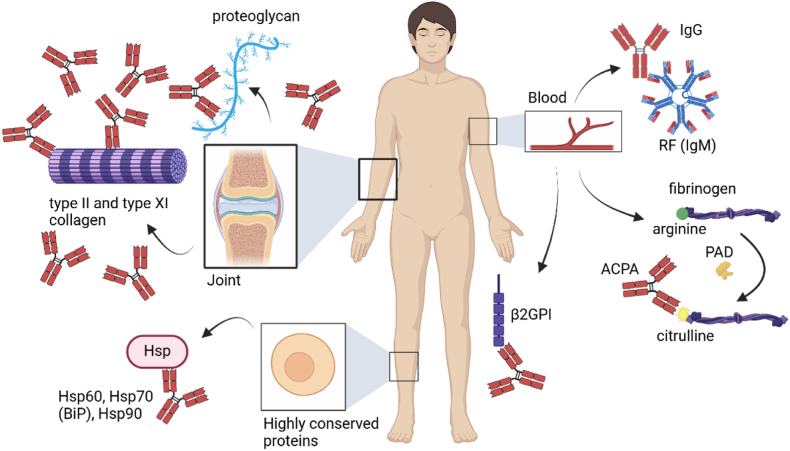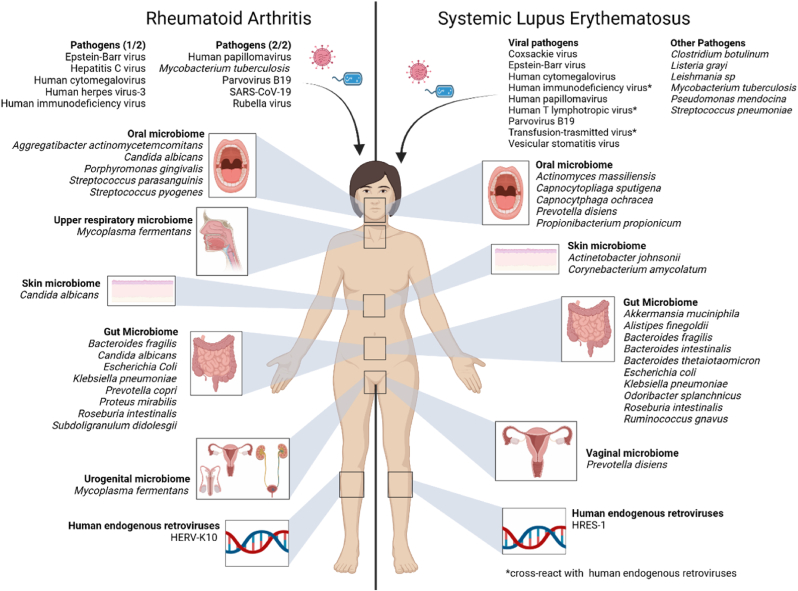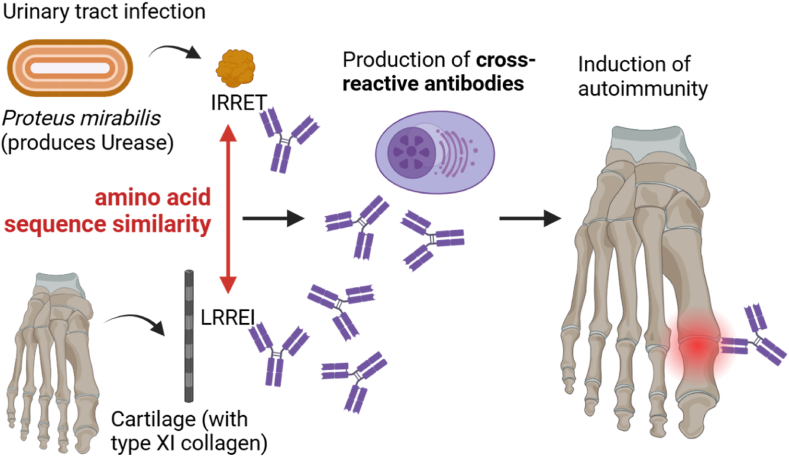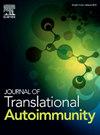Molecular mimicry in the pathogenesis of autoimmune rheumatic diseases
IF 3.6
Q2 IMMUNOLOGY
引用次数: 0
Abstract
Autoimmune rheumatic diseases (ARDs) are a heterogeneous group of conditions characterized by excessive and misdirected immune responses against the body's own musculoskeletal tissues. Their exact aetiology remains unclear, with genetic, demographic, behavioural and environmental factors implicated in disease onset. One prominent hypothesis for the initial breach of immune tolerance (leading to autoimmunity) is molecular mimicry, which describes structural or sequence similarities between human and microbial proteins (mimotopes). This similarity can lead to cross-reactive antibodies and T-cell receptors, resulting in an immune response against autoantigens. Both commensal microbes in the human microbiome and pathogens can trigger molecular mimicry, thereby potentially contributing to the onset of ARDs.
In this review, we focus on the role of molecular mimicry in the onset of rheumatoid arthritis and systemic lupus erythematosus. Moreover, implications of molecular mimicry are also briefly discussed for ankylosing spondylitis, systemic sclerosis and myositis.



自身免疫性风湿病发病机制中的分子模拟。
自身免疫性风湿性疾病(ARDs)是一组异质性疾病,其特征是针对人体自身肌肉骨骼组织的过度和错误的免疫反应。它们的确切病因尚不清楚,遗传、人口、行为和环境因素与疾病发病有关。最初破坏免疫耐受(导致自身免疫)的一个重要假设是分子模仿,它描述了人类和微生物蛋白质(同种异构体)之间的结构或序列相似性。这种相似性可以导致抗体和t细胞受体的交叉反应,从而产生针对自身抗原的免疫反应。人类微生物组中的共生微生物和病原体都可以引发分子模仿,从而可能导致ARDs的发生。在这篇综述中,我们关注分子模拟在类风湿关节炎和系统性红斑狼疮发病中的作用。此外,分子模拟对强直性脊柱炎、系统性硬化症和肌炎的影响也作了简要讨论。
本文章由计算机程序翻译,如有差异,请以英文原文为准。
求助全文
约1分钟内获得全文
求助全文
来源期刊

Journal of Translational Autoimmunity
Medicine-Immunology and Allergy
CiteScore
7.80
自引率
2.60%
发文量
33
审稿时长
55 days
 求助内容:
求助内容: 应助结果提醒方式:
应助结果提醒方式:


